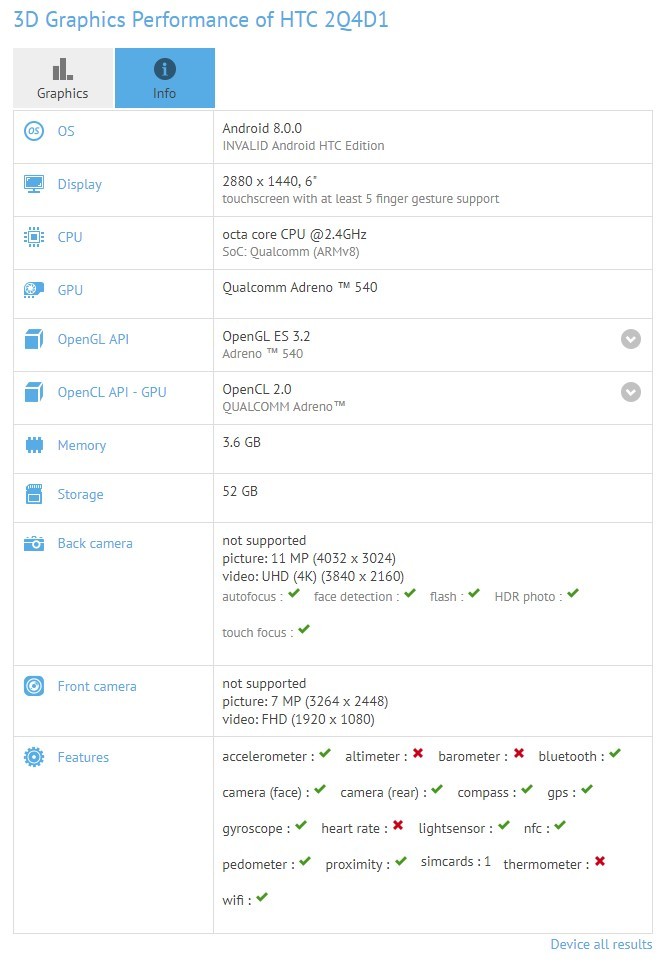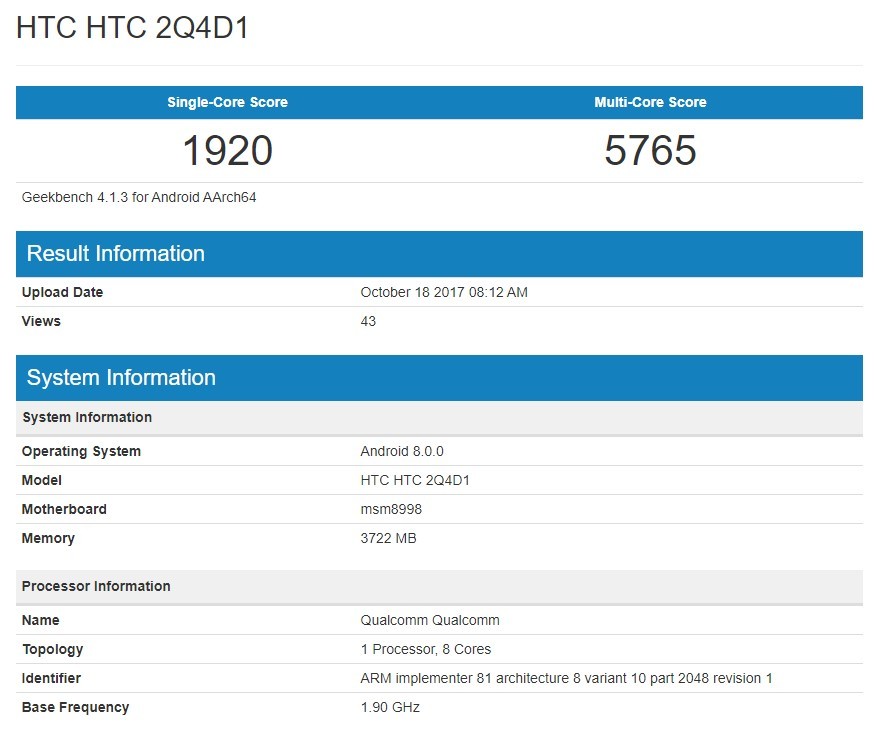HTC had confirmed earlier in this week that it will be holding a launch event on Nov. 2. Speculations are rife that the rumored HTC U11 Plus flagship phone will be unveiled at the upcoming unveil event. It seems that the Taiwanese company is testing the alleged U11 Plus handset before its launch as a mysterious HTC phone labelled as HTC 2Q4D1 has appeared on Geekbench and GFXBench with flagship specs.
Alleged HTC U11 Plus on GFXBench

The HTC 2Q4D1 could be the HTC U11 Plus as it is driven by the Snapdragon 835 chipset. The GFXBench listing also reveals that the smartphone features a 6-inch display that supports QHD+ resolution of 2,880 x 1,440 pixels. It has 4 GB of RAM and 64 GB of RAM. It has a rear camera of 12-megapixel and a front-facing snapper of 8-megapixel. It is loaded with Android 8.0.0.
Alleged HTC U11 Plus on Geekbench

Read More: HTC U11 Plus Concept Renders Surface to Reveal Marvelous Full Screen Design
Geekbench listing of HTC 2Q4D1 also shows that it is driven by Snapdragon 835 chipset along with 4 GB of RAM. The handset is preloaded with Android 8.0.0 Oreo. On Geekbench, the HTC 2Q4D1 has scored 1,920 points on single-core test and 5,765 on multi-core test.
The HTC U11 flagship phone that was launched in May this year also features Snapdragon 835. The Taiwanese company is selling the HTC U11 with 6 GB of RAM in specific regions like the U.S. In other markets, the U11 is available with 4 GB of RAM. Hence, the HTC U11 Plus is pegged to arrive in 4 GB and 6 GB RAM models.
Recent reports have revealed that the 4 GB RAM model of the rumored HTC U11 Plus will have 64 GB of storage and its 6 GB RAM variant will have 128 GB of storage. Also, the 6-inch display of the phone is expected to support an aspect ratio of 2:1 since it supports QHD+ resolution. It is poised to come with a bezel-less design that is flanked with a squeezable metallic frame for Sense Edge feature. The rumor mill has revealed that this smartphone is codenamed as Ocean Master. HTC is also expected to launch HTC U11 Life and its Android One edition before the end of this year.






